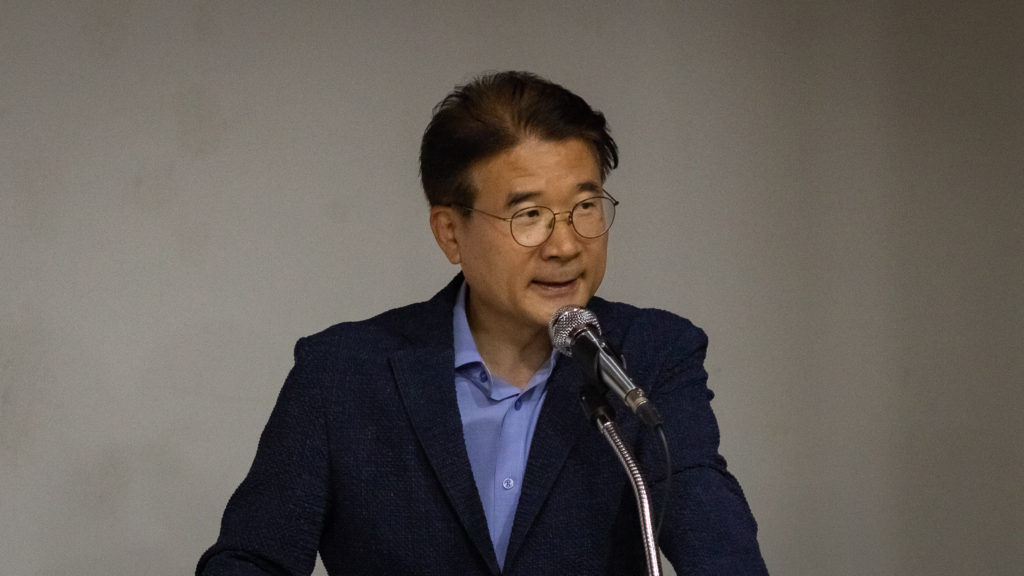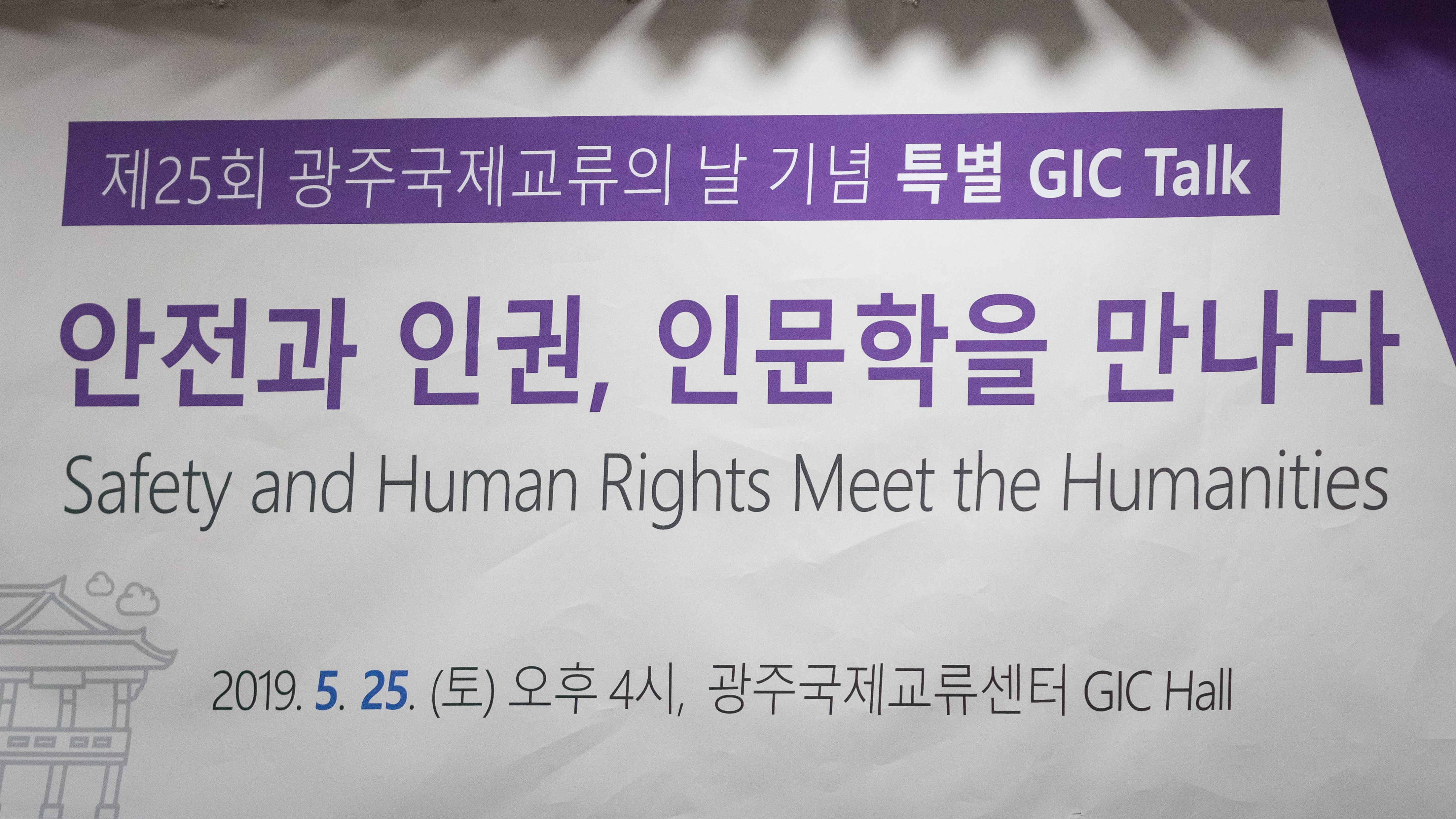GIC Talk: Humanities, Human Rights, and Security Review
Written by Farida Muhammed
When I heard there was going to be a GIC Talk at the Gwangju International Center entitled “Humanities, Human Rights, and Security,” my mind began to race with ideas. The relationship these very relevant and important academic fields of knowledge share with one another is well known and complex. I wondered how they would come together at this meeting. Most people are familiar with the music of Bob Dylan, the art of Van Gogh, and the sober tales of Albert Camus. Their contributions to their respective fields of art have fostered an ever deepening understanding of the “human experience,” which entails not just personal bouts of romance and tragedy, but also philosophical ideas and questions of purpose and rights. Inspired by the lives, art, or tragic ends of these men and the philosophical meaning their contributions have made to humanity, Vice Mayor Jeong Jong-je gave a GIC Talk on human rights, safety, and the humanities.
Inspired during his childhood, when his talent for creating imaginative stories was realized, and by the art, nature, and experiences he had in Paris, Vice Mayor Jeong Jong-je wrote a novel called “Email from Paris.” The novel chronicles the fragile relationship between two people who meet online as penpals and fall in love over stories they share with one another about the great contributors to the fields of literature, art, music, and philosophy.
Every seat was full at this event, with light string music playing in the background as the vice mayor led us on this duo’s journey of romance and intrigue, with the two protagonists’ budding relationship blossoming before us. As the characters in the novel discussed important figures within the humanities, Vice Mayor Jeong stopped along the way to provide the audience a deeper look into the lives of these figures. In the case of Albert Camus, whose life was taken in an automobile accident, the speaker highlighted how this matter touched him because, unlike in the times of Camus, tragedies like this are today easily preventable thanks to developments in public safety policy and advancements in technology.

Today, Gwangju Metropolitan City has made a clear commitment to public safety, and the city is proud to call itself one of the safest cities in Korea. In the 2017–18 time period, there were notable decreases in suicides and car accidents. Suicide, a common challenge for cities in modern times, has seen a decrease over the year that could point to community initiatives reaping the benefits of their labor. At the heart of this issue is the concept that what may be overlooked as a not-so-important event by others, such as the suicide of an unknown person or a car accident, is never felt that way by the loved ones of that individual. It is in fact a shame to lose human life to a senseless event that, with proper oversight and planning, could be prevented.
Later during the presentation’s Q&A session, an audience member asked about the efforts of the city to further combat the issue of suicide and for more information on the nature of such challenges. At that point, it was revealed that a demographic very vulnerable to suicide is the elderly. In an effort to protect this group, initiatives such as a community outlook and call center that can connect with this community and offer support to counter the proliferation of suicide have been developed.
Against this somber tone of death and senseless loss of life, we were offered hope when the vice mayor characterized it as “a healing time.” It is a time for us to celebrate our achievements in the face of adversity and to be inspired by the experiences and illustrations of this thing we call the “human experience.” It is through this reflective thinking, which many of us encounter through the humanities, and coming together that we advance our goals in human rights and safety. Walking away from the event, there was a great sense of hope and inspiration, and it is this renewal of the soul that makes events such as the GIC Talk so special.
Photographs by Sarah Pittman
The Author
Farida is an English teacher, avid reader, and novice writer living in the Jeonam region. Before Korea, she lived in Spain, where she taught English, and prior to that worked in the field of human rights and migrants rights in the U.S. She has a degree in political science, Spanish, and international relations, and her main fields of interest are immigration rights and sustainable development.




